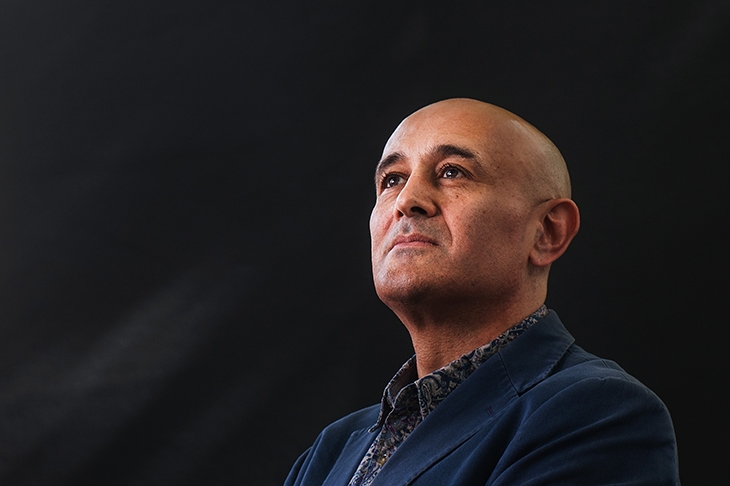It was odd listening to Jim Al-Khalili being interviewed on Radio 4 on Tuesday morning rather than the other way round. In his series The Life Scientific, Al-Khalili has developed his own brand of interviewing, encouraging his guests to talk about their work in science by leading them from personal biography —how they came to study science, what they were like at school, who influenced them — to the intricacies of their research and why we should know about it. He makes this sound so easy and natural, setting his interviewees at ease, and his listeners, too, with stories from school and university before delving into the complex ideas behind their work. Very often, it turns out, the route to achievement in science is not necessarily dependent on initial aptitude, or rational explanation, but owes much to serendipity and always a good deal of determination.
Odder still on Tuesday’s edition (produced by Anna Buckley), we could hear an audience laughing and applauding and punctuating the conversation as Al-Khalili faced his inquisitor, Adam Rutherford (his science colleague on Radio 4). The celebratory programme was recorded at the Royal Society where Al-Khalili is a fellow. This completely changed the character of the programme, making it apparent that much of the success of The Life Scientific (now in its eighth year) lies in the way it feels so intimate and individual, so private almost, as if we were sitting in the same room chatting with Al-Khalili and his guest.
He grew up, we discovered, in Iraq in the 1960s and 70s, speaking Arabic at school and English at home (his father was an engineer with the Iraqi air force), but the family left Iraq just weeks before Saddam Hussein came to power and arrived in Portsmouth when he was just 16. He’s never been back. ‘It’s a different country now,’ he says. Even by 1991, when he saw footage of a gun battle near a bridge across the Euphrates and recognised the place as on his daily route to school, he found the scene ‘so familiar and yet so foreign’. Of his work, we heard about his discovery, aged 13, that he was ‘quite good’ at physics, much better than his friends, and that for him it was just a matter of ‘common sense and puzzle-solving’. But he went from being top of the class in Iraq to having to resit his A-levels in England.
Eventually, at university in Surrey, he took a PhD in nuclear reaction theory that kept him at a computer for years, writing codes and then debugging them. All this we learnt but how he developed his gift for communicating science and why he’s now interested in quantum biology, ‘changing the way we see the world’, was left a mystery. Maybe only Al-Khalili himself could have teased out those answers.
An audience also features in the American podcast Selected Shorts in which leading actors and actresses are invited to read new short stories and classics of the genre at Symphony Space in New York. There’s a cracking list of stories and ‘readers’, but it’s really odd listening to stories that are ‘performed’ rather than read. The latest episode gave us two fictions exploring the meaning of home, with a disturbing story by Amy Silverberg about a young woman who’s more or less frogmarched out of her home in the Los Angeles suburbs by her father for the sake of a bet (read by Martha Plimpton), and Cristina Henriquez’s story of a woman refugee imprisoned in Texas who’s lost her five-year-old son. This was read by Zabryna Guevara so powerfully the audience was left silenced.
It takes a while to tune in to the different style of this podcast, knowing that other listeners are there, you’re not alone with the voice; it’s more public, less private. But there is something refreshingly, compellingly different about it.
Back in 2015 Proinsias O’Coinn made a programme for Radio 4 about his search for a painting, a sculpture, a piece of music, a story or a poem that would reduce him to tears. Why, he wondered, did he never cry? Sometime later he received an email from Donna, who lives in Rotterdam, telling him how much she was affected by his programme and that he should come and see the statue by Ossip Zadkine erected in the centre of the city to commemorate the night in May 1940 when it was severely bombed, killing 900 people and leaving 85,000 homeless. Pen Pals on Sunday on Radio 4 followed the course of O’Coinn’s growing friendship with Donna by email, her understanding of the reasons for his search, and their strange discovery that both have suffered from the same kind of cancer. Donna, he says, is ‘a stranger who listened… who became my friend’.
He travels to Rotterdam to see the statue of a man standing tense on a stone slab, his arms stretching upwards to the sky, a hole through his chest. ‘It’s not obviously beautiful,’ says O’Coinn. Donna disagrees. ‘Beautiful doesn’t always mean perfect.’ He doesn’t cry. But they talk about death, family, the difficulty of expressing what you really feel, the pain of not fitting in. So much in just half an hour.






Comments